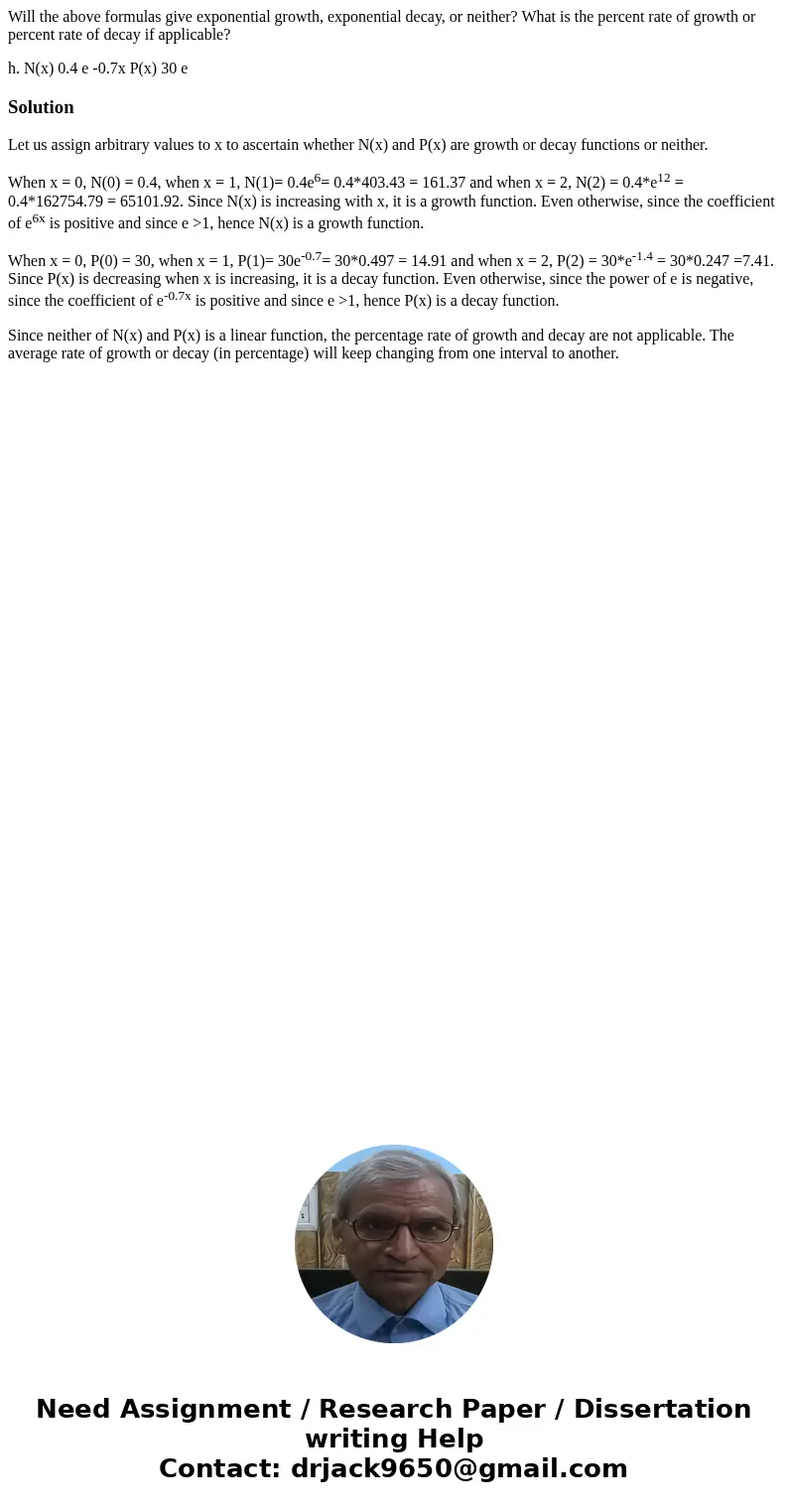Will the above formulas give exponential growth exponential
Will the above formulas give exponential growth, exponential decay, or neither? What is the percent rate of growth or percent rate of decay if applicable?
h. N(x) 0.4 e -0.7x P(x) 30 eSolution
Let us assign arbitrary values to x to ascertain whether N(x) and P(x) are growth or decay functions or neither.
When x = 0, N(0) = 0.4, when x = 1, N(1)= 0.4e6= 0.4*403.43 = 161.37 and when x = 2, N(2) = 0.4*e12 = 0.4*162754.79 = 65101.92. Since N(x) is increasing with x, it is a growth function. Even otherwise, since the coefficient of e6x is positive and since e >1, hence N(x) is a growth function.
When x = 0, P(0) = 30, when x = 1, P(1)= 30e-0.7= 30*0.497 = 14.91 and when x = 2, P(2) = 30*e-1.4 = 30*0.247 =7.41. Since P(x) is decreasing when x is increasing, it is a decay function. Even otherwise, since the power of e is negative, since the coefficient of e-0.7x is positive and since e >1, hence P(x) is a decay function.
Since neither of N(x) and P(x) is a linear function, the percentage rate of growth and decay are not applicable. The average rate of growth or decay (in percentage) will keep changing from one interval to another.

 Homework Sourse
Homework Sourse